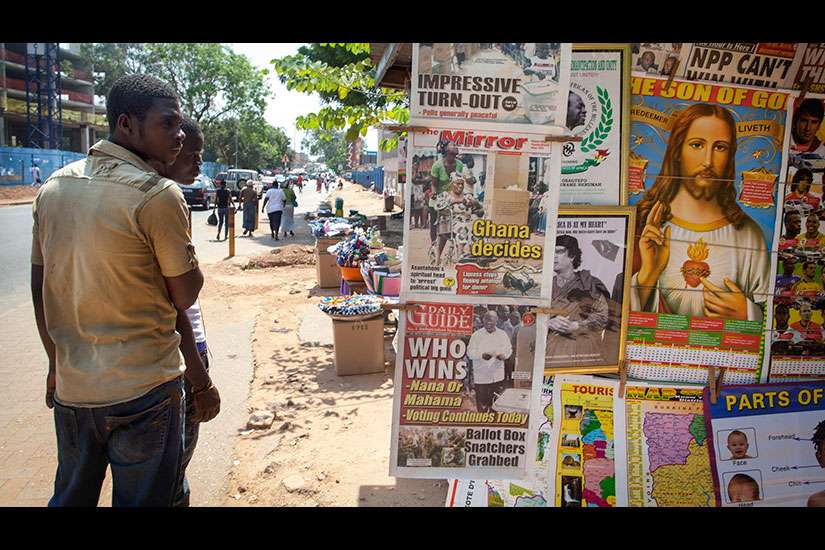The prelates also pledged in a pastoral statement released Feb. 28 to support and defend the culture of life against what they described as influences from other nations that are offered as keys to development.
"We defend the inalienable dignity and rights of all persons, as children of God, created in his message and likeness; we must tutelage the rights of all, especially the most vulnerable in society such as those conceived (the unborn), the aged and the infirm through earthly life to natural death," the statement said.
"We in the church uphold and defend that marriage is a gift of God created for man and woman, nothing more or nothing less, and that all human life is sacred and must be respected, accompanied and supported, protected and defended from the womb," it said.
The Regional Episcopal Conference of West Africa is the Catholic bishops' regional grouping, which brings together English-, Portuguese- and French-speaking bishops of West Africa. About 120 cardinals, archbishops and bishops from 16 countries attended the late-February meeting.
The church leaders also encouraged Catholics in the region not to shy away from serving in political leadership, saying that such work is "a duty that must be fulfilled in the spirit of Christ Jesus, who came not to be served but to serve and give his life (as) ransom for many."
While admitting that much remained to be done to strengthen the faith and life witness of Catholics, the prelates called on "Catholics to avail themselves of efforts at their ongoing formation in order to equip them to take up their social and political as well as cultural responsibilities in their societies."
On marriage and family life, the leaders affirmed that nations must encourage reconciliation among its residents to achieve true peace in order for "true and holistic development" to occur. "When in the society marriage and family life, that basic nucleus of humanity, is not guaranteed its proper development in peace, that society is condemned to socio-political, cultural and moral instability," they said.
The West African bishops recommitted themselves to work for peace before, during and after political elections in the region, resolving to pursue interreligious dialogue to promote peaceful co-existence with members of other religious traditions.
They also embraced the church's universal call for the new evangelization as local communities face rapid socio-cultural developments and urged Catholics to bring the light of Christ into every corner of society in a new and more radical and transformational way.
Ghanaian President John Dramani Mahama, who attended the concluding Mass of the assembly, commended the prelates for addressing pastoral concerns and calling upon all people to be tolerant of each other beliefs and cultures.
He described terrorism and religious extremism as threats to countries in the region and called on Christians to come together in unity to overcome extremist influences.
Mahama also assured the gathering that he would work to uphold peace before the country's Nov. 7 general election.
The conference's next assembly is set for 2019.


